“Stand With Standing Rock”: Solidarity Through Song
Rick Hughes, Bryan Moskalik, and Mateo Pimentel, graduates of Brophy College Preparatory, a Jesuit high school in Phoenix, Arizona, recently collaborated on “Stand with Standing Rock”, in solidarity with those protesting at Standing Rock. ISN interviewed Mateo Pimentel, who is also a former Jesuit Volunteer, about the song, and how the friends’ Jesuit formation has influenced the themes they explore through music.
How did your Jesuit education and experience as a Jesuit Volunteer tie in to your desire to stand in solidarity with those in Standing Rock?
Much of our formation at Brophy College Preparatory contributed to our desire to collaborate on this song. A great deal of our shared high school experience culminated in a desire to work for justice in the world in a way that accords with our own talents and gifts. It made sense for us to think about a way in which we could be in solidarity with the Tribe and the protesters at Standing Rock that was authentic and inspired by their efforts and mission. When a high school (Brophy, in our case) exposes students to classes such as Gospels-In-Action, in addition to music appreciation and guitar, I think it is natural that these pieces continue to resonate a decade later, manifesting in a song like “Stand With Standing Rock.”
As a Jesuit volunteer in the rural southern Andes of Peru, music proved a very effective instrument for mutual sharing with my students and the community in which I lived.
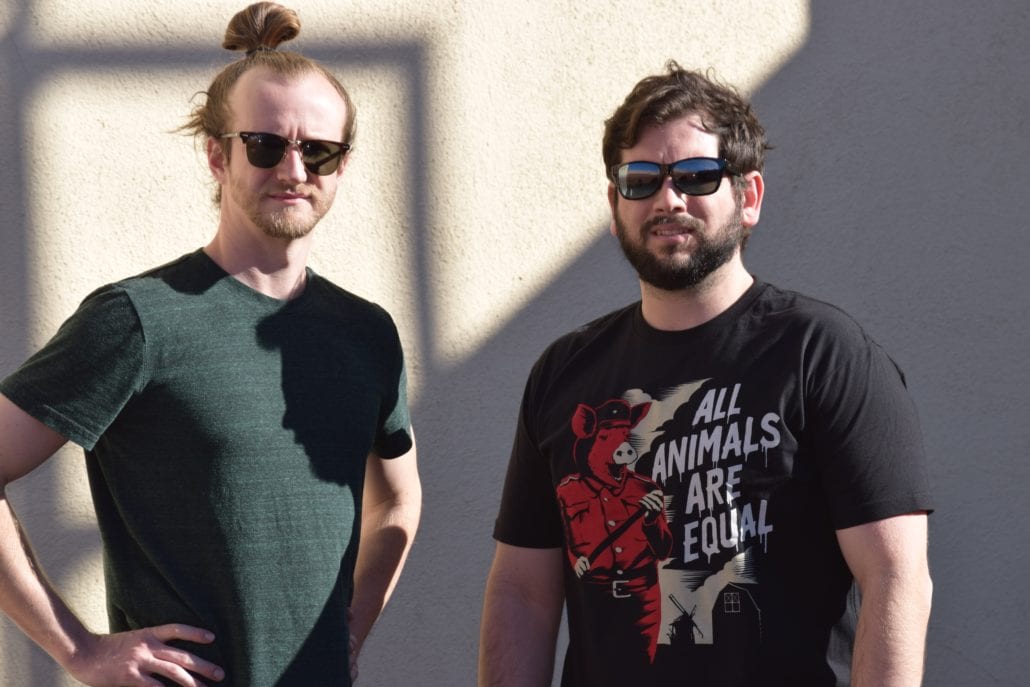
Rick Hughes and Mateo Pimentel [credit: Marcus Pimentel]
Our Jesuit education and formation baptized us into an appreciation for art and the humaneness that it engenders in the world. There is an inherent solidarity that transcends people when music communicates what one harbors inside but cannot express with words or other kinds of gestures.. Activism is necessary, which the Tribe and the protesters have demonstrated; solidarity with those efforts takes on as many manifestations as there are unique people who align themselves with those efforts. Art (music, in our case) has a politics about it that seems to speak to people beyond the realm of rhetoric or logic, functioning at a very visceral level.
How do you hope to continue to use music as a vehicle for statements of solidarity/social change?
The three of us love creating music, and we recognize a shared obligation to our listeners. Our manipulation of an art form like music requires honesty and critical thinking, aligning with awareness that we should be concerned with the social impact our music can have. This sense of responsibility as artists springs directly from our Jesuit formation, as “men for others,” using our gifts for the greater good.

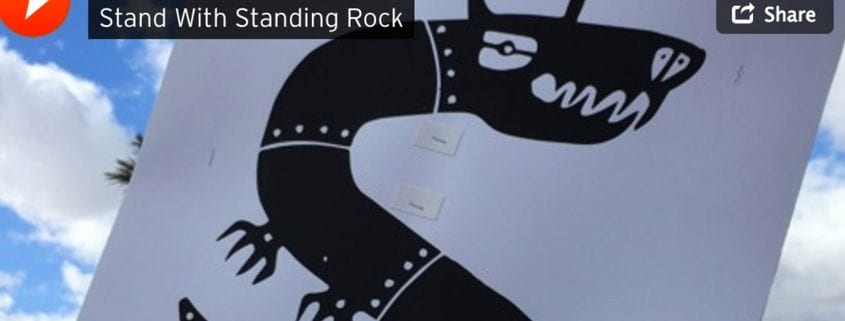
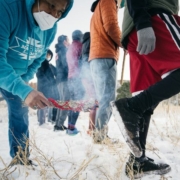
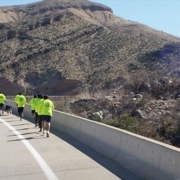
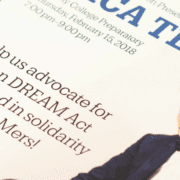
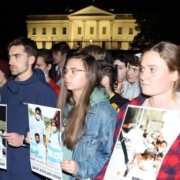
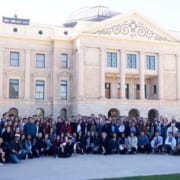


Leave a Reply
Want to join the discussion?Feel free to contribute!